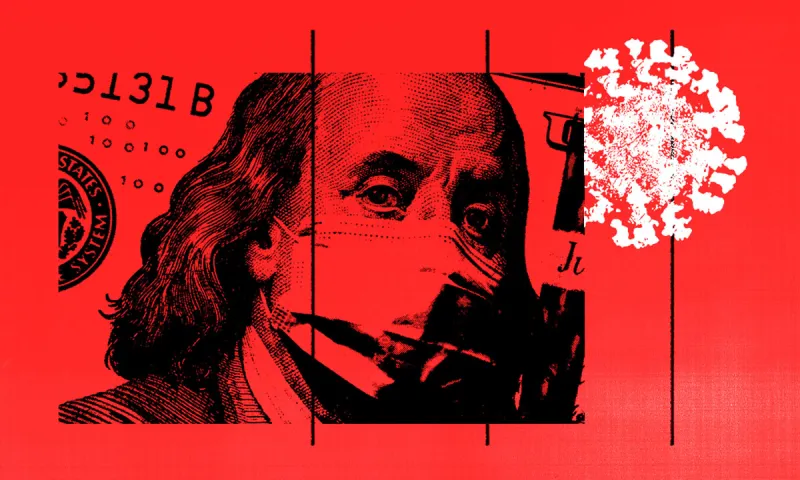
Illustration by II
Two in three institutional investors agree: The stock market’s recovery is overblown.
According to this week’s II Fear Index, 65 percent of asset managers and allocators believe the long-term impacts of Covid-19 have not been sufficiently factored into stock markets. Their views were recorded between June 18 and June 22, as U.S. stock markets continued to hover just short of pre-pandemic highs, despite rising numbers of infections in parts of the country.
Bond prices were seen as more realistic, with 59 percent of surveyed investors commenting that fixed-income markets accurately reflected the long-term effects of the coronavirus. A quarter of respondents said Covid-19 had not been factored in appropriately, while 16 percent thought the pandemic had overly influenced bond markets.
A total 100 institutional investors responded to this week’s survey, sharing their current views on the economy and the coronavirus pandemic. For the second week in a row, investors were more concerned about public health than they were about economic stability, though by a smaller margin: 51 percent said their governments should prioritize public health over the economy, down from 55 percent last week.
[II Deep Dive: Investors Think the Economy Will Get Worse Before It Gets Better]
Nearly all respondents described themselves as “vigilant” in protecting themselves and others from Covid-19, including 28 percent who believed they were being more careful than they needed to be. Still, most of the surveyed investors thought the broader public could be doing more to prevent the virus from spreading, with 64 percent indicating that changes in public behavior would accelerate the recovery from the pandemic.
Unsurprisingly, the thing that investors thought would have the greatest impact on the course of the pandemic was the development of vaccines and coronavirus treatments. By comparison, changes in national political leadership and economic strategy were seen as less likely to accelerate the recovery from the health crisis.
Elsewhere in this week’s survey, asset managers and allocators weighed in on the potential impacts of additional tariffs, as the U.S. and European Union impose new taxes on imports. Respondents overwhelmingly believed that new tariffs would be harmful to the global economic, with 79 percent indicating that it would negatively impact economic growth. In addition, 56 percent said tariffs would be bad for employment, while 44 percent thought import taxes would stifle innovation.
Results from the II Fear Index poll continue below. To contribute to the index, please register here.





